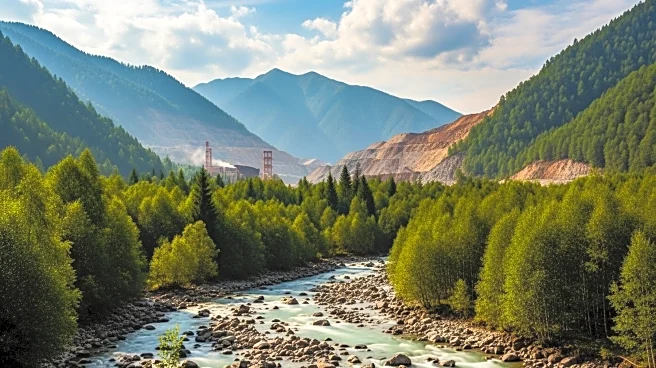What's Happening?
Nepal's government has granted a mining concession for the country's largest iron deposit in Jhumlabang, a remote farming community. Local residents have expressed concerns over displacement, water pollution,
and destruction of forests and farmlands. Community groups argue that the project violates international law regarding Indigenous peoples' rights to free, prior, and informed consent. Despite assurances from officials and the mining company, villagers vow to resist the project, emphasizing the need to protect their land, health, and environment.
Why It's Important?
The mining concession in Jhumlabang highlights the tension between economic development and environmental preservation. While the project promises job creation and reduced dependency on iron imports, it poses significant risks to local communities and ecosystems. The situation underscores the importance of balancing industrial growth with sustainable practices and respecting Indigenous rights. The outcome of this conflict could set a precedent for future mining projects in Nepal and other regions facing similar challenges.
What's Next?
The mining company plans to conduct environmental assessments following initial drilling to test the quality of iron hematite. Community members continue to oppose the project, seeking to halt its progress through legal and advocacy channels. The government and company may need to engage in more meaningful consultations with the community to address concerns and ensure compliance with international standards.
Beyond the Headlines
The conflict in Jhumlabang raises broader questions about the role of Indigenous communities in decision-making processes for large-scale projects. It highlights the need for transparent and inclusive approaches to development that prioritize environmental sustainability and cultural preservation.








